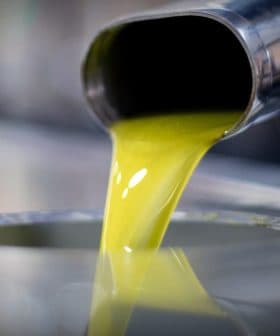Research Demonstrates Potential of Oleuropein in Bowel Disease Treatment
Oleuropein, a phenol found in olive oil, has been found to effectively alleviate ulcerative colitis by modulating gut microbiota and bile acid levels, providing a potential alternative treatment for this chronic inflammatory bowel disease. The compound not only relieves symptoms but also addresses underlying pathogenic processes, making it a promising candidate for further research and potential complementary treatments for various diseases, including colorectal cancer.
The olive oil phenol oleuropein has been shown to be effective at alleviating ulcerative colitis, a chronic inflammatory bowel disease with rising global rates.
A new study, published in a special issue of the journal Foods, indicates that the mechanisms by which it does so open up new avenues of treatment for this and other colorectal diseases.
Ulcerative colitis is a chronic inflammatory bowel disease that affects the colon and rectum, leading to persistent mucosal inflammation and ulcer formation.
See Also:Health NewsPatients with ulcerative colitis typically experience symptoms such as diarrhea, abdominal pain, rectal bleeding and unintended weight loss.
In addition, there is a significantly higher risk of colorectal cancer associated with the disease, estimated to be two percent after ten years, eight percent after 20 years and 18 percent after 30 years.
Current treatments, such as aminosalicylates, corticosteroids and immunosuppressants, are of limited value and often come with serious side effects, including hypertension, bone loss and organ toxicity.
Given this and the debilitating nature of the condition, there is widespread recognition of the need for alternative treatment candidates.
A phenolic compound with natural anti-inflammatory and antioxidant properties, oleuropein extracted from extra virgin olive oil, has previously been shown to be effective at alleviating ulcerative colitis. However, little of the literature has focused on the exact mechanisms by which it does so.
Previous studies have suggested that oleuropein may alleviate symptoms of ulcerative colitis by reducing oxidative stress and modulating immune responses.
The researchers focused on the interactions between oleuropein and gut microbiota, hypothesizing that it could protect the colon by modulating microbial populations and their metabolic products.
Using mouse models, orally administered oleuropein was shown to significantly improve clinical symptoms, such as weight loss and colon shortening, indicating physical tissue repair.
At the cellular and molecular levels, oxidative stress-related abnormalities, such as elevated myeloperoxidase activity, were reversed, suggesting the mitigation of oxidative damage.
Meanwhile, pro-inflammatory cytokines were suppressed through the NF-κB signaling pathway, and tight junction protein levels were increased.
See Also:Consuming Oleuropein May Mitigate the Effects of Aging on Muscular AtrophyTo confirm the role of gut microbiota, the microbiota were transferred from treated to untreated mice. Without any additional intervention, ulcerative colitis severity was reduced, indicating that microbial changes induced by oleuropein play an important role in the compound’s therapeutic effects.
These findings were further enforced by 16S rRNA sequencing, which revealed increased levels of Lactobacillus and decreased levels of Proteobacteria, a group strongly associated with inflammatory gut responses and numerous diseases.
In addition to microbial composition, the researchers investigated the impact of oleuropein on bile production.
Ulcerative colitis patients exhibit elevated levels of primary bile acids, produced by the liver, and reduced levels of secondary bile acids, which are created through bacterial interaction within the colon.
Such imbalances inhibit the growth of beneficial bacteria and promote pathogen growth. Analysis showed that oleuropein treatment significantly restored levels of bile acid, including key secondary bile acids such as hyodeoxycholic acid.
Because the hyodeoxycholic acid levels differed substantially between the treated and untreated groups, their independent effects were studied.
Hyodeoxycholic acid administration reproduced many of the protective effects of oleuropein, including improved weight maintenance, reduced colon shortening and reduced tissue inflammation. Like oleuropein, hyodeoxycholic acid also suppressed NF-κB signaling and restored tight junction protein expression.
These findings suggest that oleuropein also acts in part by boosting hyodeoxycholic acid levels, which in turn activate FXR, a receptor known to play a key regulatory role in chronic intestinal inflammation, and suppress pro-inflammatory signaling.
The researchers conclude that oleuropein not only relieves symptoms but also addresses underlying pathogenic processes. These include inflammation, oxidative stress, barrier dysfunction and microbial imbalance.
Its apparent therapeutic effects on a complex regulatory network of multiple pathways associated with numerous diseases, including colorectal cancer, make it a strong candidate for new alternative or complementary treatments and further research.









